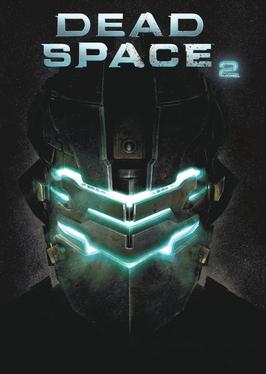
Visceral Games (formerly EA Redwood Shores) was an American video game developer studio owned by Electronic Arts. The studio is best known for the Dead Space series.
In 1998, Electronic Arts (EA) moved from San Mateo, California to a new corporate headquarters building that they had constructed in Redwood Shores, California.[3] In this move, they founded a studio at this location, named EA Redwood Shores, which operated under the general "EA Games" division.
EA Redwood Shores's initial title was Future Cop: LAPD, released in 1998. Subsequent games through 2008 were generally licensed tie-ins with movies and other properties.[4] According to designers Ben Wanat and Wright Bagwell, EA had not been keen on producing original intellectual property (IP) during this time, but the studio was pursuing an idea of making a second sequel to System Shock and Vice President and General Manager Glen Schofield had been trying to coax EA's executives to let them pursue this. While they had some gameplay and ideas set for this game, the title changed upon the release of Capcom's Resident Evil 4 in 2005, which received high critical praise and commercial success. According to Wanat and Bagwell, not only did Resident Evil 4 alter their ideas for the System Shock game, but it also helped Schofield to convince EA's management to let them pursue a new title. The game became known as Dead Space.
Redwood Shores becomes Visceral Games Dead Space was a critical success, leading the studio to be rebranded to Visceral Games in 2009. Along with this, the studio was moved out from EA Games and became its own division under EA, being the first "genre" studio within the company, with the focus of developing third-person action games in the same vein as Dead Space.[6] Alongside the rebranding, two sister studios, Visceral Montreal in Montreal, Quebec alongside EA Montreal, and Visceral Melbourne in Melbourne, Australia were established.
Alongside its work for Dante's Inferno, inspired by the Divine Comedy, Visceral had announced plans in 2009 for a title called The Ripper, which was inspired by Jack the Ripper.[4] The Ripper was confirmed to have been cancelled, potentially as early as 2009,[8] but industry rumors suggested that a spin-out of that title Blood Dust had been at work at the Visceral Melbourne studio before the project was cancelled. The Visceral Melbourne studio was closed down on September 19, 2011.
On its release in 2010, Dante's Inferno received mixed reviews, and the studio subsequently returned to Dead Space with its sequel Dead Space 2, released in 2011.The sequel has similar critical success, but in 2017, it was revealed that the game was considered a financial disappointment with EA; following the studio's closure, former level design Zach Wilson estimated that with development costs around $47M and an equivalent marketing budget, EA did not recoup enough costs on 4 million in sales.
Visceral continued working on the next title, Dead Space 3, which they wanted to make in the same vein as the first title, but according to Wanat, there was concern from EA about this approach, and among other large changes, had the team introduce co-operative play into the game. Wanat described that there was pressure to make the game play faster and appeal to a broader audience, an approach that was at odds with the roots of the series in the horror genre.[5] Though the game still had generally positives on its release in 2013, it sold far less than Dead Space 2. EA's VP Patrick Söderlund said in a July 2013 interview, following Dead Space 3's that while they still valued the franchise, Visceral was not working on a fourth title, and instead had been assigned to two new projects.
Visceral had also been developing Army of Two: The Devil's Cartel with the Visceral Montreal studio. Upon its completion, EA let go of the whole of Visceral Montreal on February 21, 2013. One of the two projects that Visceral started working on in 2013 was Battlefield Hardline, a "Cops and Robbers" variation on the previous Battlefield games. A smaller team then started working on a project called Jamaica, a pirate-themed game.

